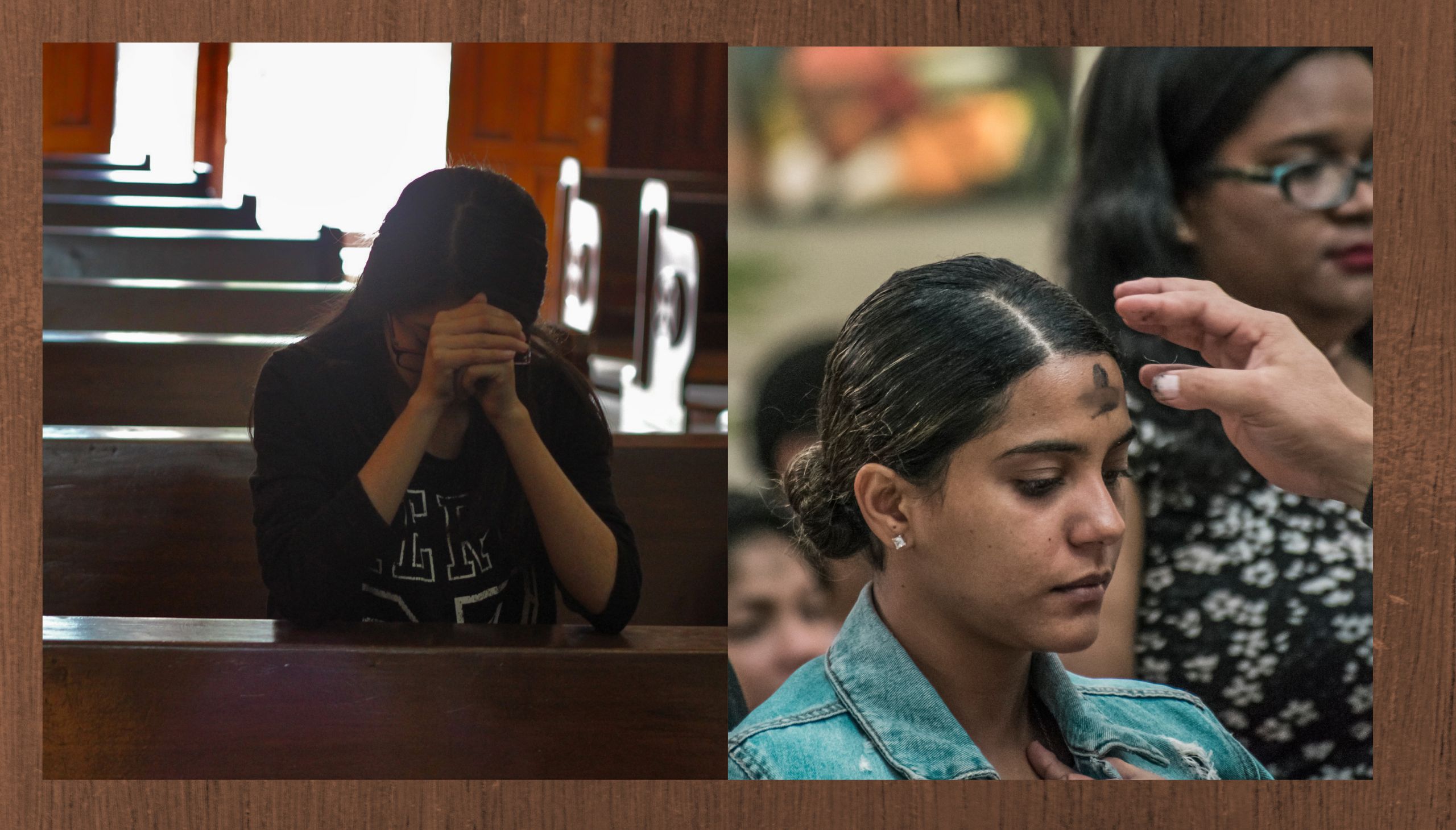Q&A: How to prepare for the Lenten season; changes in the confessional
Lent will begin this year on Wednesday, Feb. 22. The preceding day, Shrove Tuesday, is set aside as a day for preparation for the Lenten season.
Shrove Tuesday — also called Fat Tuesday, Mardi Gras, or Carnival— is observed by many Christians through participating in confession and absolution, the ritual burning of the previous year’s Holy Week palms, finalizing one’s Lenten sacrifice, and eating pancakes.
The different names come from the different activities meant to take place that day in preparation for Lent. Shrove means to hear and confess sins. Carnival comes from “carnelevare,” which means to stop eating meat. As abstinence from meat during Lent at one time included animal products, Christians would use up their milk, butter, and eggs to make and eat pancakes or cakes on Fat Tuesday, said Father John Gordon, Secretary for Evangelization for the Archdiocese of Newark.
Ash Wednesday begins the season of Lent, a season of prayer, penance, almsgiving, and fasting in preparation for the Easter season – the crucifixion and resurrection of our Savior Jesus Christ. It is expected to bring us closer to God, to make our focal point.
Ash Wednesday is a sacramental service where the priests use the ashes to mark the sign of the cross on the believer’s forehead, symbolizing our sinful nature and need for salvation. Ash Wednesday is always 46 days before Easter.
Jersey Catholic sat down with Father Gordon to discuss how we can prepare ourselves for the Lenten Season.
JC: Should we seek confession and absolution on Shrove Tuesday?
Father Gordon: It may be hard to find a confessional on a Tuesday, but yes, you should seek absolution before the start of Lent and go to confession the Saturday before Ash Wednesday to prepare for the time of discipline of prayer, fasting, penance, and almsgiving.
JC: Beginning this spring the experience of the sacrament of penance will be slightly different due to recently approved changes in the English translation from Latin in the prayer of absolution. What can we expect when we go to confession?
Father Gordon: The revisions are to ensure a more accurate liturgical text translation from the Latin text. Words are important and the words have to be what is written.
The changes are:
“God, the Father of mercies,
through the death and resurrection of his Son
has reconciled the world to himself
and poured out [formerly “sent”] the Holy Spirit for [previously “Holy Spirit among us for”] the forgiveness of sins;
through the ministry of the Church
may God grant [instead of “give”] you pardon and peace.
And I absolve you from your sins
in the Name of the Father, and of the Son, and of the Holy Spirit.”
Parishioners may notice the change as early as Ash Wednesday but it must be done by April 16, the Second Sunday of Easter.
JC: Why is Christmas always the same date but Easter moves between March 22 and April 25? And is Lent 40 or 46 days?
Father Gordon: Easter Sunday always occurs on the first Sunday after the Paschal Full Moon — the full Moon that occurs on or after the spring equinox. Lent runs from Ash Wednesday to Holy Thursday and is 40 days which excludes the six Sundays in Lent. Forty days represent the time Jesus spent in the wilderness, enduring the temptation of Satan and preparing to begin his ministry.
JC: What do the ashes on our forehead symbolize?
Father Gordon: In the books of Job and Jonah, they wore ashes and sackcloth as a public sign of repentance. The ashes we receive are a reminder of our sinfulness and our own mortality. Because they are on our forehead for all to see, they serve as a witness to our faith.
JC: What are the days for fasting and what does that mean exactly?
Father Gordon: There are days of fasting and days of abstaining. For Catholics, ages 18-59, fasting occurs on Ash Wednesday and Good Friday, when one meal can be eaten. Two small meals can also be taken that make up one meal. On Fridays, Catholics 14 or older, must abstain from eating meat. Those who are pregnant, nursing, or have health conditions are excused from fasting and abstinence.
JC: Should we also give up something for Lent?
Father Gordon: It’s a tradition but not obligatory. It represents a sacrifice and Jesus’ 40 days of fasting in the desert. We can give up something bad for us or do something extra that is good for us. Many people give up something like candy, alcohol, smoking. Others do something extra like read the Bible or attend Mass daily. It’s an opportunity for conversion, to continue to do it after Lent, but there’s value in it even if it just lasts through Lent. It should be something meaningful to you and makes a difference in your life.
JC: Since the six Sundays are not technically part of Lent, does that mean we don’t need to abstain from what we have given up for Lent?
Father Gordon: Yes, that has been the tradition. But if you give something up for Lent, why break the discipline, the penance for a day?



